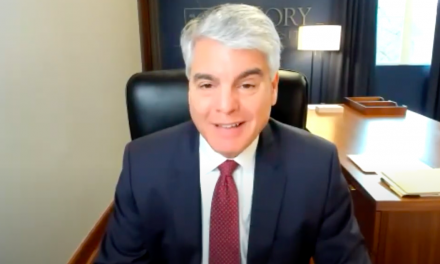The recent departmental changes to the College and Laney Graduate School have come under criticism by some who say the process by which the changes were made was unfair and unclear. Joel Brockner, a professor at the Columbia Business School, devoted 20 years to studying ‘procedural fairness,’ a term he coined for the process of implanting big changes in businesses and organizations.
Employees’ reactions to decisions and their support for those decisions are affected not only by the outcome but also by the fairness of the process in deciding the outcome, according to Brockner in a 2008 interview with the University of Washington Foster School of Business.
According to Brockner, one way employees feel a decision is fair is whether they had a voice in the decision-making process. However, Brockner said after extensive research it is now known that many other factors drive people’s perceptions of fairness.
Timing is important in employees’ reactions to decisions. Whether people feel decisions were made in advance and not overnight, and if people had advanced warning to the changes is crucial in an implemented decision’s reception. Brockner said that the option to appeal the decisions and knowing that the decisions made were based off accurate information are important as well. In addition, there is an interpersonal component behind major decisions.
“When considering the fairness of a procedure, people also take into account the quality of the interpersonal treatment they received, such as the extent to which decision makers treated them with dignity or the extent to which decision makers were open and honest in their communication,” wrote Brockner and Francis Flynn of the Columbia Business School in “It’s Different to Give Than to Receive: Predictors of Givers’ and Receivers’ Reactions to Favor Exchange.”
In addition to Brockner’s research, Harvard Business School professor John Kotter also studies the ways changes are implemented in a professional environment and how the process can be most effective.
In his 2006 article in the Harvard Business Review, Kotter “maintains that too many managers don’t realize transformation is a process, not an event. It advances through stages that build on each other. And it takes years. Pressured to accelerate the process, managers skip stages. But shortcuts never work.”
Kotter identifies eight stages that are necessary for a decision to be effective and to succeed. The first four stages concern establishing a sense of urgency, a committee with qualified members, a vision and a plan to communicate that vision. The next steps include empowering others to act on the vision, creating short-term visible benefits, elaborating, building on and enhancing those previous benefits and solidifying those changes to be institutional.
Brockner also explores procedural fairness and its effects on ‘survivors,’ which are employees that remain after a layoff. According to Brockner, the reactions of the survivors affect a business’s productivity and moral.Their reactions are shaped by whether they feel the process by which decisions are made was done fairly. Brockner said that one of his most interesting findings from his research is that the perception of whether the decision process was carried out fairly or not has a big impact on whether people view the outcome favorably.
As long as the decision-making process can be done fairly, managers and other leaders do not have to pay as much attention to whether people will feel they will be better off or worst off as a result of the decision, according to Brockner.
“From a manager’s point of view they have much more control over the fairness of the process across the masses than they do have control on the favorability across the masses,” Brockner said.
With most decisions, some people will be better off and others worse off, but if the process is fair, and employees agree it is fair, then employees – regardless of personal outcome – will be more acceptable of the consequences from the decision. While Brockner uses the example of layoffs, he said the importance of procedural fairness is essential when making any decision.
The procedural fairness of reallocations, organizational restructure, mergers and acquisitions and even the implementation of new technology in the work place is just as important as it is when laying off people within a workforce. Brockner thinks managers who don’t act procedurally fair isn’t necessarily because they don’t care.
“Sometimes it’s a matter of lack of knowledge,” he said. “Sometimes, I think it’s a lack of skill; managers might think they are more procedurally fair than they really are … but they have a self awareness gap.”
But, Brockner continues that there is promising research in the area of procedural fairness.
“You can actually train managers in procedural fairness and they can get better at it,” said Brockner. “Employees whose managers under go process fairness training actually respond a lot better, they’re a lot less stressed, they’re much more committed and much more productive relative to those employees whose manager have not undergone procedural fairness training.”
– By Nicholas Sommariva
The Emory Wheel was founded in 1919 and is currently the only independent, student-run newspaper of Emory University. The Wheel publishes weekly on Wednesdays during the academic year, except during University holidays and scheduled publication intermissions.
The Wheel is financially and editorially independent from the University. All of its content is generated by the Wheel’s more than 100 student staff members and contributing writers, and its printing costs are covered by profits from self-generated advertising sales.





